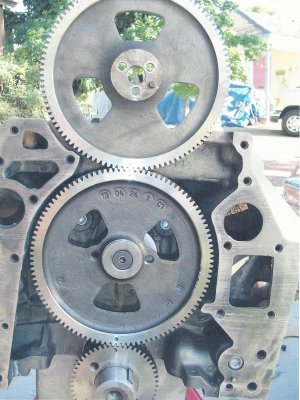What could make a diesel engine produce white smoke? What does it mean when a diesel engine is blowing white smoke? What can cause white smoke from a diesel? Why does my diesel engine have white smoke?
This typically occurs due to the engine being too cool to burn the fuel , often resulting from low compression in one cylinder, problems with the fuel injection timing or a defective fuel injector. Typically, this white smoke indicates a serious fuel injection problem. Continuous white smoke while driving is one of them. But mostly, it is the incorrect injector timing in the cylinders. This causes white smoke.
White smoke often occurs when there is either too much fuel being injected into the combustion chamber, or not enough heat to burn the fuel. If it is smoking out the tailpipe, that means that either coolant or a bunch of excess fuel is getting. Condensation that accumulates inside the exhaust pipes, converter and mufflers can produce a puff of white smoke upon diesel engine start-up.
In very cold temperatures, the heated exhaust can freeze into minute fuel droplets when exiting the exhaust and produce a more prolonged emission of white smoke for a very short period of driving time. To be more specific, the white smoke you see is your diesel fuel , unburne or only partially burned. The commonest reasons for this lie in the fuel system.
They range from faulty fuel injectors to retarded fuel injectio n timing, or even low compression. Diesel smoke (like blowby and oil use ) is a worrying engine symptom which indicates that an engine is not running well, and its service life is likely to be shortened considerably, unless remedial action is taken. Basically, smoke from a diesel engine indicates that something is not right. Water or coolant can cause white smoke from a diesel as well. White smoke occurs when raw diesel comes through the exhaust completely intact and unburned.
This is a symptom of a bad problem. Usually, white smoke indicates that the diesel fuel is not burning correctly. Unburned diesel fuel will make its way through the exhaust completely unused. Be careful of white smoke as it will irritate your eyes and skin.
If white smoke occurs during a startup in freezing temperatures, then goes away, it usually indicates frozen deposits of soot which expanded around the rings then burned away once the engine warmed up. This pump is responsible for pumping diesel into the cylinders of a diesel engine. Usually with white smoke you’re either spitting out vaporous un-burned diesel or steam. To tell the difference between the two is fairly easy, if your engine is making white smoke right from start up and the smoke sits on the water without disappearing you’re most likely looking at un-burned diesel. Sometimes diesel engines emit a white smoke while starting.
The white smoke is due to unburnt fuel caused by improper heating. Diesel engines need high compression and heat for fuel combustion. It can be especially difficult to start a diesel engine during cold weather.
Diesels with an engine temperature below about F. If the smoke is thin, and goes away relatively quickly, than it is merely condensation. However, thicker, longer lasting smoke is a much larger headache. Your engine is more than likely burning coolant.

The most noticeable symptom of internal coolant leakage is when the white smoke is billowing out of the exhaust pipe and leaves a sweet odor in the air. This video should only be used as guidance and not as an absolute-guide. Since this is a boat and marine diesel forum, an white smoke seems to come with the territory, I’ll first start by giving you about twenty years of personal experience with white smoke. When the fuel pump injection timing is off, it is difficult to determine the root cause.
If you don’t know what you are doing.
No comments:
Post a Comment
Note: Only a member of this blog may post a comment.